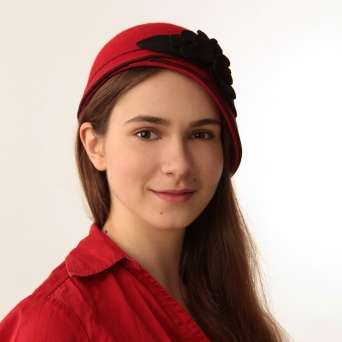Andreas Kriegenburg’s Götterdämmerung is nothing like the rest of his Ring. Up until now, the direction seems to have focused on the aesthetics of the stage, with dancers using their bodies to form beautiful backdrops for the action. But that was in the old world of gods, nature and heroes. Now the world is ending: out with the trees, in with the skyscrapers! The final opera in the cycle is ugly and conceptually heavy-handed. It’s precisely what some critics call “Eurotrash”. And it’s a lot of fun.
We see that the world is nearing its end through a collage of news broadcasts. Natural and man-made disasters play out on small screens, filling the stage. The Norns weave in a refugee room after a nuclear disaster. Shocked survivors stare at the ground as hazmat-suited workers confiscate contaminated phones and accessories.
Capitalism is also destroying the world. The Gibichung noble family inhabits a glass office building with a well-stocked bar and closet (the latter containing only suits in various shades of blue). Gutrune and Gunther callously scheme to get ahead, make work for the servants, and grope each other lustfully. (I’m not sure what to make of the ironic use of incest as a sign of decadence, given what happens in earlier Ring operas!) Siegfried stumbles into their world dressed in brown hunting clothes, with Nothung on his back. Hilarity ensues: he has no clue what to do with glass doors, sofas, cigars or cocktails.
Symbolism abounds, and it isn't subtle. Gutrune greets Siegfried in a long-trained bright-red gown while rocking on a gold, Euro-symbol-shaped rocking horse. The family dining table takes the same color and form. The chorus of men and women in drab business suits can hardly be induced to look up from their phones. When they do, it’s to offer those same phones as “weapons” or to record the opera’s more scandalous events – presumably to share them on social media (a powerful weapon, indeed).
More important than Kreigenburg’s set and concept is the fact that they give the singers something to play with... and play these singers did! As Gutrune, Anna Gabler tossed off her part in a clear but harsh-edged voice and strutted, seduced and stumbled her way around in dresses with trains as long as the stage. Alejandro Marco-Buhrmester was perfect as the swaggering but cowardly Gunther, sounding and looking solidly self-assured until suddenly he wasn’t. He has just the right voice for the role; it is expressive and carries well without sounding overly heroic. The overwhelming voice in the family came from Hans-Peter König’s Hagen. He took a couple scenes to warm up, but then he showed off the sound of a proper Wagnerian bass: loud and booming without any hint of a droning crackle. His understated acting fit his hateful but patient character perfectly and served as a nice contrast to Tomasz Konieczny’s excitable Alberich.
Wotan’s brood played their parts well, too. Stephen Gould’s Siegfried worked better here than in his eponymous opera, perhaps because he didn’t need to fight the orchestra as much or go to so many extremes. His long story-telling scene was riveting because of his excellent vocal and dramatic choices. We got a new Brünnhilde again for this opera, and Petra Lang approached the role very differently from Nagelstad or Herlitzius. She didn’t make it seem easy; on the contrary, sometimes it seemed nothing but sheer willpower was getting her through her lines and her voice, while undoubtedly powerful, lacked expressive range at its top. Effort was apparent in her acting as well, and her constant movement and overdrawn facial expressions were too much in the initial scenes. By the end of the opera, though, they were just right. (It’s hard to overreact to Siegfried’s death!) Finally, Okka von der Damerau’s appearance as Waltraute gave her yet another opportunity to flaunt her huge but sensitive voice with its countless textures. For that single scene, she was as much of an audience favorite as any of the protagonists.
As has been the case throughout this cycle, it’s Maestro Kirill Petrenko who really stole the show. Wagner’s orchestrations have a lot going on, but under Petrenko’s baton, each section of the Staatsorchester was perfectly balanced against the others. They also played crisply, with unbelievably cleans starts and cut-offs. Petrenko had kept this Ring moving fairly quickly so far, and Götterdämmerung was no exception; he managed to slow the Staatsorchester down for the opera’s more tender moments without losing overall momentum.
On the whole, I was impressed. Kriegenburg’s staging was hardly brilliantly original, but it amused without distracting. The cast and orchestra delivered, and Munich’s Ring finished strongly.




